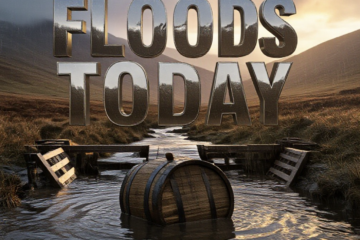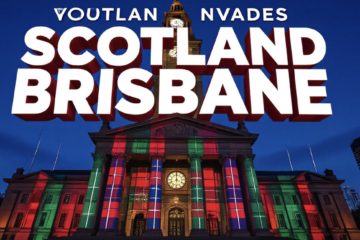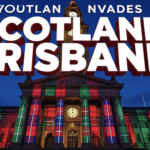Scotland paused on Armistice Day to honor those who gave their lives in conflicts across the world, with services of commemoration taking place across the country. On Sunday, 11 November, Scotland joined in the annual tradition of a two-minute silence at 11:00 a.m. to reflect on the sacrifices made during times of war.
A Day of Remembrance
The solemn observance marks the signing of the Armistice of 1918, which brought an end to the fighting of World War I. Since then, the day has become an occasion to remember not only those lost in the Great War but also all service personnel who have died in conflicts since. The silence is observed nationwide, as people gather to honor the fallen.
This year, First Minister John Swinney laid a wreath at the Stone of Remembrance outside Edinburgh City Chambers during a ceremony. Swinney, whose own uncle, Cpl Tom Hunter, was posthumously awarded the Victoria Cross after dying in Italy during World War II, took the time to reflect on the immense sacrifices made by those who fought and died.

The Importance of Sacrifice
Swinney, speaking at the Edinburgh ceremony, highlighted how the sacrifices of past generations have ensured the freedoms people enjoy today. “It is central to our understanding of our freedoms and our democracy today that we understand the sacrifices which were made by previous generations to make sure we could live in the type of society we live in,” he said. His personal connection to the day, through the loss of his uncle, added an emotional weight to his remarks.
Meanwhile, Army veteran Derek “Benny” Bennett shared his thoughts on the importance of remembering all service personnel, not just those who fought in the more widely recognized conflicts. Bennett, who served in Northern Ireland, Cyprus, and during the Gulf War, reflected on his own experiences and the scars—both visible and invisible—that soldiers carry with them, regardless of the wars they fought in.
Honoring Veterans’ Unseen Struggles
Bennett, who lives at a home run by veterans’ charity Erskine in Edinburgh, recalled close calls during his service, including a rocket fired from an RPG that missed his vehicle by just six inches. Reflecting on his experiences, he emphasized the importance of remembering all conflicts, including lesser-known peacekeeping missions. “It’s crucial we remember not just the big wars like the Second World War, the Falklands, Afghanistan, or Iraq, but all the conflicts and peacekeeping missions that don’t always make the headlines,” he said.
Bennett, who was left paralyzed after a spinal cord injury in 2018, stressed that the scars left by less-publicized wars were just as profound. “I know people who have suffered, and I personally know that the scars—whether seen or unseen—are just as real for those who served in less talked-about places,” he added. His powerful message resonated with many, reminding the public that the emotional and physical costs of war affect veterans long after the headlines fade.
National Unity in Remembrance
While the Armistice Day commemoration in Scotland focused on honoring the fallen and their sacrifices, the broader national remembrance included a unified effort across the UK. In London, leaders from all political parties and former prime ministers gathered at the Cenotaph for their own ceremony, with King Charles, the Prince and Princess of Wales, and other senior royals also participating.
As Scotland observed the silence and laid wreaths at war memorials across the country, the national day of remembrance served as a poignant reminder of the enduring legacy of those who served and sacrificed in conflicts both large and small.


















